-
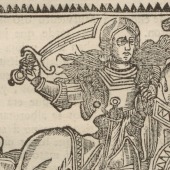
Curiosa relación, en que se refiere y da cuenta de veinte muertes que hizo una doncella, natural de la ciudad de Valencia, siendo dos hermanos suyos los primeros, por estorvarla un casamiento: y cómo fue presa y sentenciada à muerte, yendo vestida de hombre, y se libertó por descubrirse era muger: y el fin dichoso que tuvo: de Doña Teresa de Llanos
-
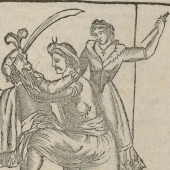
Romance nuevo de Don Carlos Lope de Arimanza y Doña Gabriela Altube
-
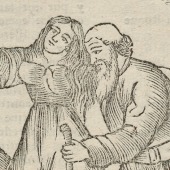
Doña Ines de Alfaro: dió muerte à dos hermanos suyos porque se la habian dado à Don Pedro de Aguilar su amante: huyó al campo en trage de hombre, en donde cometió muchos crimenes y asesinatos
-
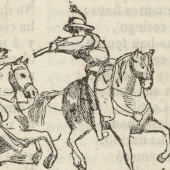
Nuevo y curioso romance en que se declara las atrocidades de Sebastiana del Castillo: refiérese como mató á sus padres y á dos hermanos
-
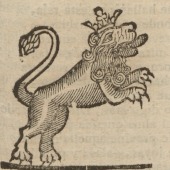
Romance nuevo en el qual se da cuenta de lo que sucedió à una dama con un leon: con todo lo demás que verá el curioso lector
Don’t lock up your daughters!
Read all about it!
As children grow and mature, questions of marriage start to arise, and terrible things can happen when parents don’t agree with their daughters about what makes a suitable marriage partner. Why did parents feel so strongly about the marriages of their daughters? Part of the answer, at least in Spain, lay in the honour code. Parents felt they needed to control their daughters not just to ensure good marriages, but because loss of honour in daughters – as in wives – would ruin family honour.
Parents often chose for their daughters men likely to make solid citizens, rather than exciting husbands. When officially-approved suitors were imposed in this way, however, disasters often ensued, including rebelliousness, elopements, dishonour, and all too frequently a descent into violence. Brothers often took the prime role in imposing confinement or punishment upon their sisters. It appears that girls are more troublesome than boys in these family tales; clashes of fathers and sons are remarkably absent from this literature.